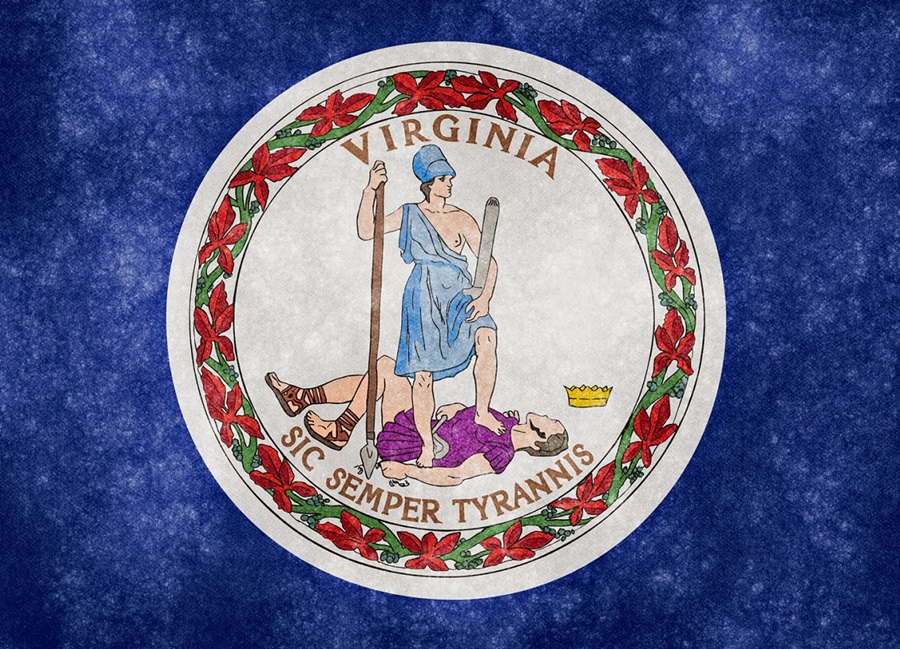Republican Glenn Youngkin defeated the heavily favored Democrat Terry McAuliffe to win the Virginia governorship on November 2nd. Though polling turned towards him and against his opponent in the election’s last days, at the campaign’s inception on June 8th, Youngkin was considered a longshot in a state that had not elected a Republican to a statewide office since 2009.
Former President Trump figured prominently in McAuliffe’s ad strategy. Though keeping a slight distance from the ex-President, Youngkin accepted his endorsement and echoed some of his themes. The Democratic ad strategy sought to remind voters of that connection in a state Trump lost by 10 points in the 2020 election. Indeed, “anti Trump” messaging ($6.5 million, 12,646 airings) was the 3rd most-common issue used in Democratic advertising in this campaign, following behind “Education” ($8.2 million, 17,392 airings) and “Budget/Govt Spending” ($7.2 million, 15,116 airings).
Additionally, Democratic ad makers and strategists tapped heavily into fears that a GOP-aligned Supreme Court may strike down Roe v. Wade and allow for states to pass anti-abortion laws. Though “abortion” was only the 6th most common issue in their broadcast campaign, nearly 50% of all ads concerning government spending were directly related to GOP calls to “defund Planned Parenthood.”
The Youngkin campaign’s focus on educational issues has often been discussed as a key reason for his win and there are data to back up this assertion. This campaign turned against the favorite when Terry McAuliffe said in a debate “I’m not gonna let parents come into schools. I don’t think parents should be telling schools what they should teach.” Out of the 9 ads released by the Youngkin campaign after that debate, 5 mentioned this remark. Though no GOP ad ever mentioned “Critical Race Theory” by name, McAuliffe’s gaffe was successfully exploited by his opponents.
Questions related to “Budget/Govt Spending” ($7.2 million, 19,079 airings) were the most prevalent themes in the GOP ad strategy. “Education” ($7 million, 18,744 airings) and “Jobs/Unemployment” ($6.3 million, 15,218 airings) rounded out the top 3 of the most targeted issues.
Much as their Democratic opponents tied in their primary themes to secondary concerns related to abortion, the Youngkin campaign and their allied PACs tapped into fears regarding unemployment and jobs lost to trade deals with China. 36% of the dollars allocated towards “Budget/Govt spending” and 41% of the expenditure tied to “Jobs/Unemployment” was spent on one creative citing a failed, Governor McAuliffe-backed trade deal with China that contributed to the unemployment crisis is rural Virginia.
Deep blue New Jersey gets a red scare
Democratic Governor Phil Murphy won re-election on November 2nd over Republican challenger Jack Ciattarelli. Mail-in ballots gave the lead to Murphy late into election night and in the days afterwards, but a 2-point win over a lightly regarded GOP opponent in a heavily Democratic state 4 years after winning the governorship by 14 points gave Garden State Dems a few anxious moments.
“Healthcare” ($7.5 million, 7,899 airings), “Abortion” ($5.6 million, 5,739 airings) and “Prescription Drugs” [$4.5 million, 4,374 airings] were the most targeted issues in Democratic advertising in this race. As their allies to the south did, the Murphy campaign and allied PACs leveraged the GOP’s stance on abortion in their messaging. Of all the ad activity directed towards the “Healthcare” issue, 74% linked this issue with abortion rights. Furthermore, 64% of all ads mentioning “Prescription Drugs” were in reference to access to birth control medications and proposed funding cuts to Planned Parenthood.
By a large margin, concerns over taxes were the most common theme in GOP advertising in this campaign. Creatives mentioning “Taxes” ($2.3 million, 2,101 airings) accounted for 88% of all Republican ad spend. “Public Safety” ($646,000, 552 airings) and “Jobs/Unemployment” ($536,000, 460 airings) rounded out the top 3 of the issues used by the Ciattarelli campaign and the Republican Governors Association in their ultimately unsuccessful efforts.
New Jersey tends not to re-elect governors of either party so, in one sense, Murphy can enjoy his achievement; however, results in both these states presage a difficult environment for the Democratic party’s prospects in next year’s mid-term elections.

